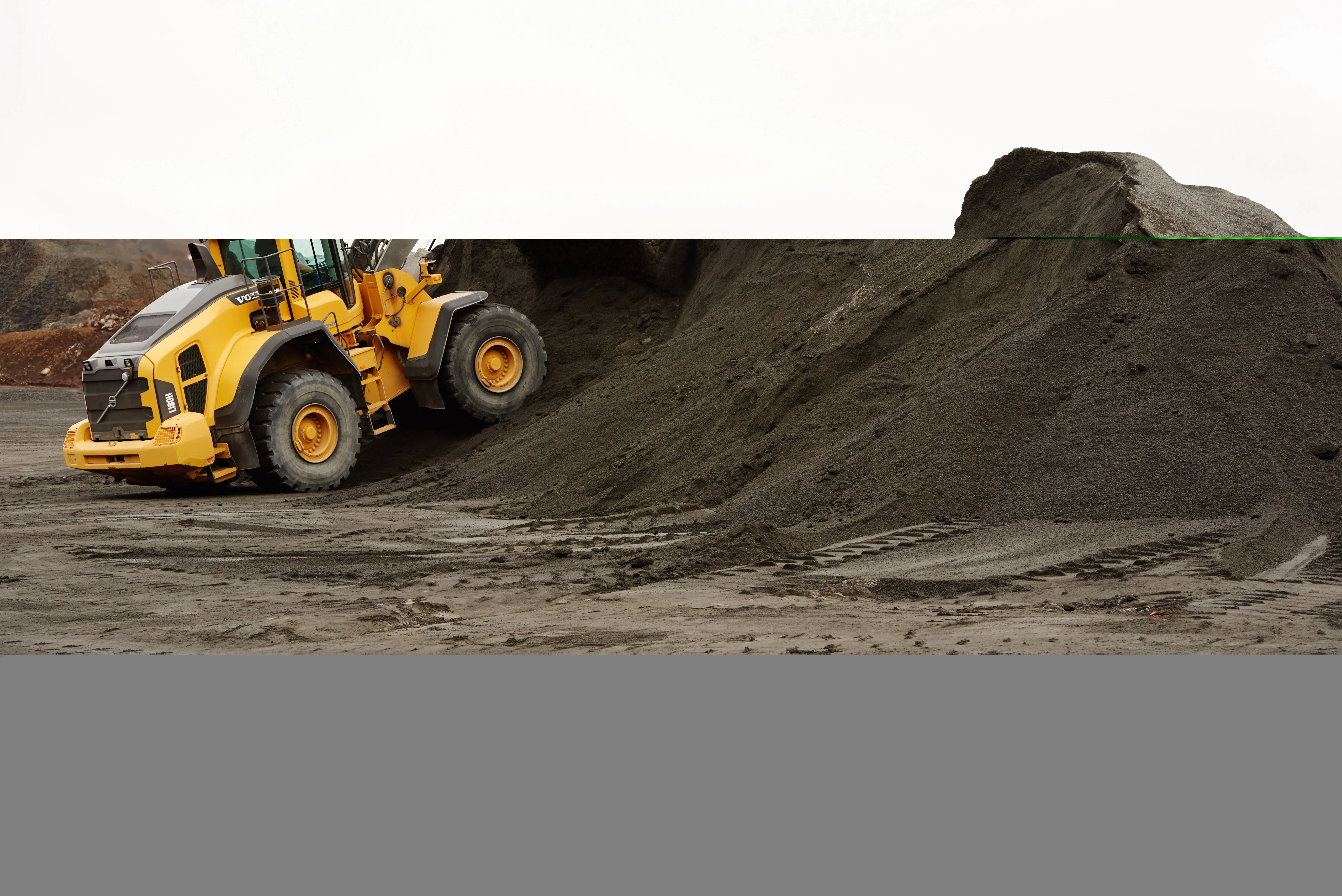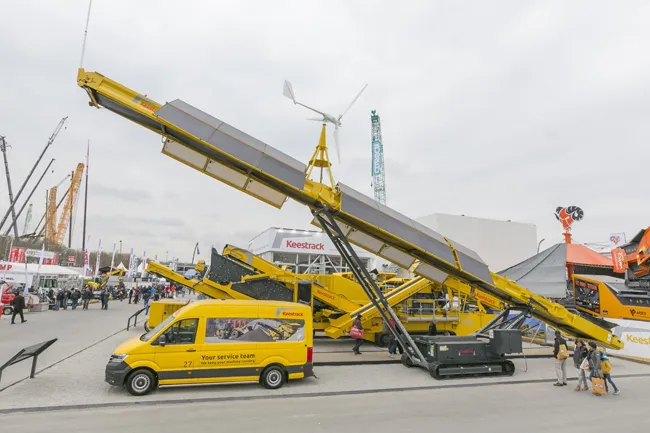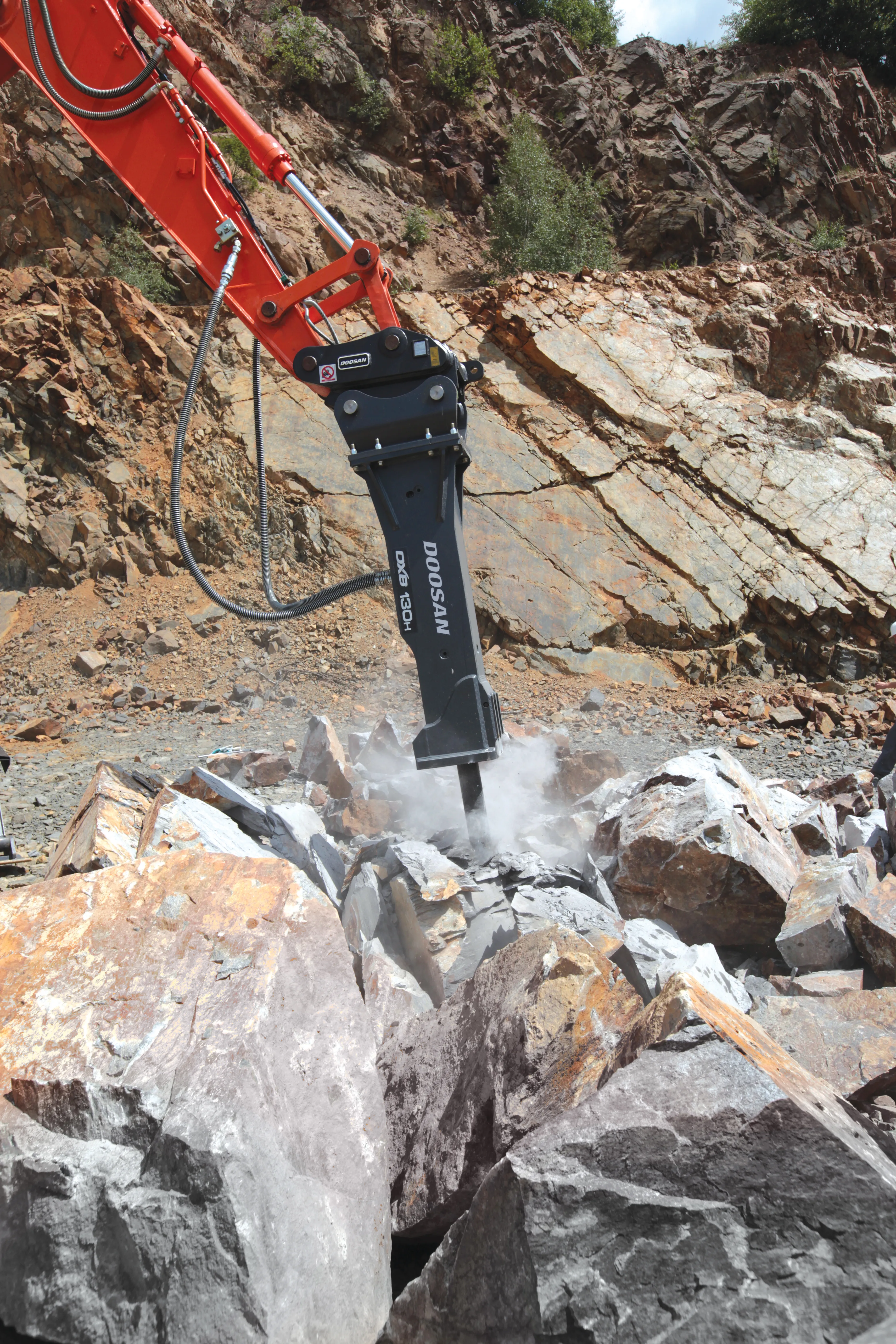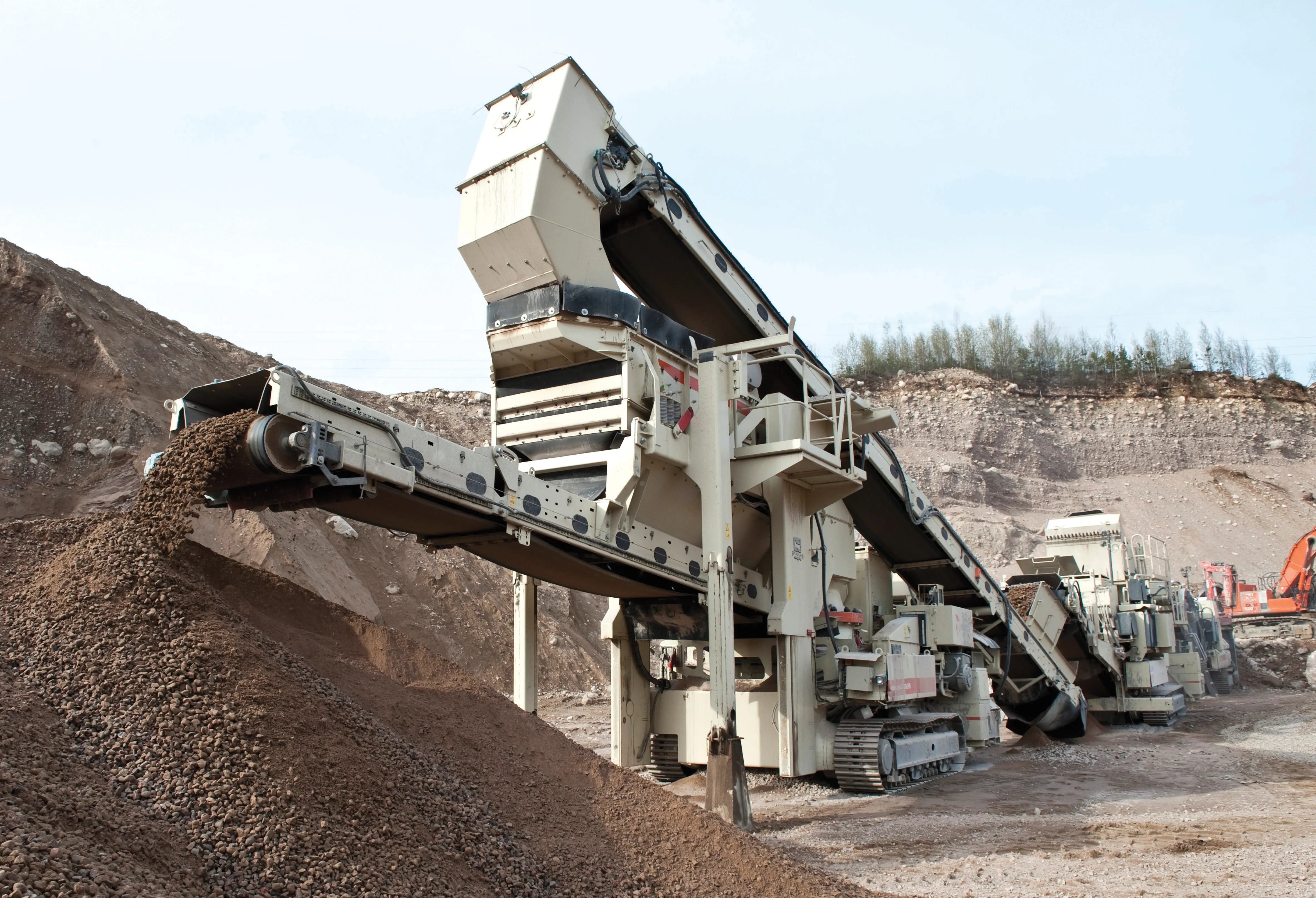
The quarry is owned by Alexander Ólafsson, a contracting company that specialises in crushing and screening. The firm extracts basalt for use in general construction, as well as producing aggregates for use in concrete. The firm crushes, screens and cleans the material, which is then used for a variety of applications across the country, such as road building and civil construction. Around 150 truckloads of material is extracted from the quarry/day, equating to about a million tonnes/year.
The bulk of the heavy duty work is carried out by a fleet of Volvo L180 wheeled loaders, which work around the clock to keep up with the growing demand. The firm has one L180E, one L180F and four new L180Hs, including one bought this year. In addition the firm has other Volvo CE loaders in its fleet, an L90H and an older L180E, which are used its smaller quarries elsewhere in Iceland, having used machines from the manufacturer since the business was established in the early 1980s.
The L180H’s specifications, bucket capacity, static tipping load, reach height and operating weight, suit the firm’s needs at the Vatnsskarðsnámur facility. Another key feature is the sophisticated OptiShift system, which reduces fuel consumption by up to 18% and increases machine performance. The Volvo CE machines also cope well with the climate, which can be extremely cold in winter. Meanwhile low internal noise levels and vibration protection increase the chances of a productive work shift. The cab also incorporates a single lever control for ease of operation.








